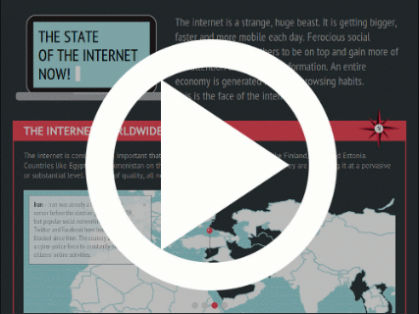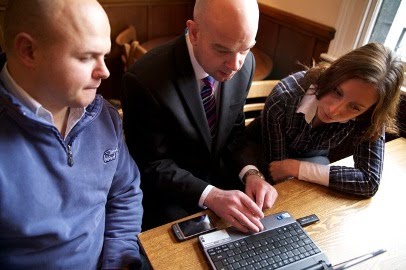Sunday, 31 October 2010
Are you ready to participate? Reflecting on Like Minds
Scott Gould used the word participants when addressing the audience to close the Like Minds Conference in Exeter on Friday. As he pointed out, the Like Minds website, (note participatory URL wearelikeminds.com), magazine and literature use this term in preference to words like delegate and attendee. Alternative words but not interchangeable. Participant illustrates that everyone at the conference played their part and was actively involved in some way. This could have been through taking photos, shooting video, blogging, tweeting, networking or contributing to an immersive workshop or lunchtime discussion. Plus of course there were the organisers, facilitators and speakers. This is a great approach and helps break down the barriers that traditionally separated the delegators - organisers and speakers - from the delegates.
Those who couldn't physically attend the Like Minds conference could also participate by watching the live feed, following the #likeminds hashtag and engaging in conversation on Twitter and other social networks.
Such participation reflects the fact that in this digital age everyone can contribute. Have something to say? Then you can podcast it, blog it, video it, tweet it or post onto social networks. Want to comment on a Sky News story? Then you can tweet the broadcaster or put a comment underneath the website article. Contrast this to the previous broadcast age in which we simply absorbed the news and information and were pretty much limited to 'letters to the editor'.
The participation of viewers during a broadcast was a theme explored at Don Boyd's 'How to Make Great Films in the YouTube Age' workshop I participated in on Friday morning. With video accessible via the internet there are great possibilities for the viewer to engage with other viewers and even the performers. Don Boyd pointed out that porn websites are ahead of the mainstream in this respect. In the true spirit of participation, a number of people promptly offered to help Professor Boyd with further research.
In January, YouTube live streamed the Hope for Haiti Now concert which enabled viewers to participate by donating to help the relief effort whilst watching the performance. Last week, the photo and video sharing site Flickr launched a People You May Know feature which like Facebook feature of the name helps you connect other viewers which will facilitate discussions around photos and videos.
With the merging of broadcast, internet and social network technology through Apple TV and Google TV, with Internet TVs now on sale, plus the ability to check-in to programs with apps like GetGlue, participation by the audience will certainly increase in the same way that it has at conferences like Like Minds. It's our natural instinct to join in, to participate. The positive title of Robin Wight's concluding keynote talk summed this up neatly, 'The Future is Bright, The Future is Social'.
Those who couldn't physically attend the Like Minds conference could also participate by watching the live feed, following the #likeminds hashtag and engaging in conversation on Twitter and other social networks.
Such participation reflects the fact that in this digital age everyone can contribute. Have something to say? Then you can podcast it, blog it, video it, tweet it or post onto social networks. Want to comment on a Sky News story? Then you can tweet the broadcaster or put a comment underneath the website article. Contrast this to the previous broadcast age in which we simply absorbed the news and information and were pretty much limited to 'letters to the editor'.
The participation of viewers during a broadcast was a theme explored at Don Boyd's 'How to Make Great Films in the YouTube Age' workshop I participated in on Friday morning. With video accessible via the internet there are great possibilities for the viewer to engage with other viewers and even the performers. Don Boyd pointed out that porn websites are ahead of the mainstream in this respect. In the true spirit of participation, a number of people promptly offered to help Professor Boyd with further research.
In January, YouTube live streamed the Hope for Haiti Now concert which enabled viewers to participate by donating to help the relief effort whilst watching the performance. Last week, the photo and video sharing site Flickr launched a People You May Know feature which like Facebook feature of the name helps you connect other viewers which will facilitate discussions around photos and videos.
With the merging of broadcast, internet and social network technology through Apple TV and Google TV, with Internet TVs now on sale, plus the ability to check-in to programs with apps like GetGlue, participation by the audience will certainly increase in the same way that it has at conferences like Like Minds. It's our natural instinct to join in, to participate. The positive title of Robin Wight's concluding keynote talk summed this up neatly, 'The Future is Bright, The Future is Social'.
Monday, 18 October 2010
Facebook Groups are groovy
Facebook replaced their existing groups with 'new Groups' a couple of weeks ago and I've been active user since launch. The new Groups have the same name as their predecessor but they really are quite different and will appeal to a wide variety of users.
The emphasis is now very much on communication, sharing and collaboration amongst members. Previously, the purpose of groups seemed unclear and they sat in a 'no mans land' between (Personal) Profiles and (Business) Pages. Groups are now tools with a clear purpose that can be used by various groups of people.
Interestingly, they could play a part within large companies too although perhaps not just yet. Mark Zuckerberg, CEO Facebook, has joked that Groups will replace Socialcast and stated that they're not an enterprise product - "Yeah, well maybe this will replace Socialcast! [laughs] Not today, this isn’t designed to be an enterprise product."
But Groups are certainly a lightweight alternative to Socialcast and Yammer and the product shares similar objectives, that is, facilitation of collaboration and communication. However, most corporates are unlikely to trust their data with Facebook and many companies still prevent access to Facebook by their employees. So Socialcast and Yammer need not feel threatened just yet.
It's chief use is likely to be amongst groups of people outside companies that share similar goals and interests and need a central hub to collaborate and communicate. Such groups of people are numerous and could include:
There are some great new features in groups:
Groups are quick and easy to set up so if you're one of a group of people who want to communicate, share or collaborate go to http://facebook.com/groups where you can set one up and invite your 'friends' to join.
The emphasis is now very much on communication, sharing and collaboration amongst members. Previously, the purpose of groups seemed unclear and they sat in a 'no mans land' between (Personal) Profiles and (Business) Pages. Groups are now tools with a clear purpose that can be used by various groups of people.
Interestingly, they could play a part within large companies too although perhaps not just yet. Mark Zuckerberg, CEO Facebook, has joked that Groups will replace Socialcast and stated that they're not an enterprise product - "Yeah, well maybe this will replace Socialcast! [laughs] Not today, this isn’t designed to be an enterprise product."
But Groups are certainly a lightweight alternative to Socialcast and Yammer and the product shares similar objectives, that is, facilitation of collaboration and communication. However, most corporates are unlikely to trust their data with Facebook and many companies still prevent access to Facebook by their employees. So Socialcast and Yammer need not feel threatened just yet.
It's chief use is likely to be amongst groups of people outside companies that share similar goals and interests and need a central hub to collaborate and communicate. Such groups of people are numerous and could include:
- hobbyists
- fans of a sport of celebrity
- charities
- sports teams
- clubs
- friends
- family
- classmates
- housemates
In short, people with shared interests and a need for communication. For example, I'm in a Group of freelancers who work together on client projects and in a group that kicks around news and opinion on social media and technology. It's like having your own social network.
With Ning now charging for their product it's hard to think of a tool that fulfils the communication and collaborative needs of groups such as these - please let me know if you are aware of any. Within a large company people in departments or with shared interests are linked together with email lists but this rarely happens outside of the corporate firewall, so Facebook appears to have spotted a need that it can fulfil.
With Ning now charging for their product it's hard to think of a tool that fulfils the communication and collaborative needs of groups such as these - please let me know if you are aware of any. Within a large company people in departments or with shared interests are linked together with email lists but this rarely happens outside of the corporate firewall, so Facebook appears to have spotted a need that it can fulfil.
There are some great new features in groups:
- Easy wall updates - no need to select a comment button - just tap the enter key
- Page rendering - the latest Wall Posts rise to the top of the Page
- Toolbar - easy access to all the main actions at top of page - Post, Link, Photo, Video, Event, Doc
- Docs - that's right. Docs in Facebook. Create notes and short docs
- Group chat - ability to chat with ALL members of the Group at the same time
- Email updates - send and receive updates using the Group email address
- Notifications - after you've joined a Group you may well be bombarded with email notifications. As was the case with Places, Facebook deserve an Overshare badge for the default settings. You can go into settings and change them although it seems to take a few hours for them to come into effect
- Formatting - whilst the docs are a great innovation the formatting is limited and hard to work with
Groups are quick and easy to set up so if you're one of a group of people who want to communicate, share or collaborate go to http://facebook.com/groups where you can set one up and invite your 'friends' to join.
Subscribe to:
Posts (Atom)









